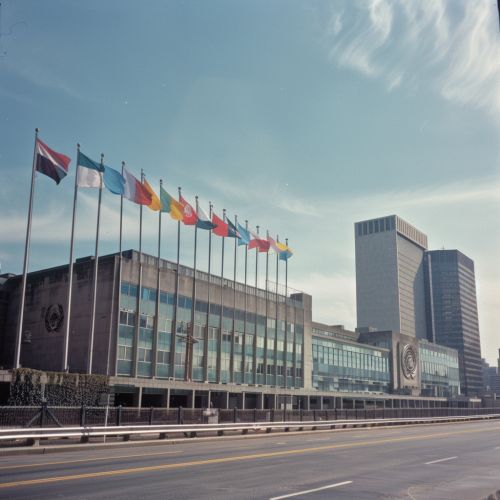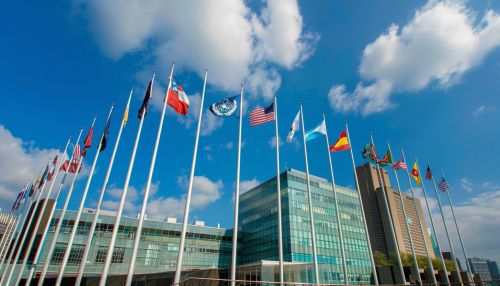Global Governance
Introduction
Global governance refers to the way international affairs are managed. It involves the laws, norms, procedures, and institutions that facilitate cooperation and coordination among states, international organizations, and non-state actors. The concept of global governance is not synonymous with world government, but rather, it denotes the regulation of interdependent relations in the absence of an overarching political authority.


History and Evolution
The concept of global governance has its roots in the peace treaties and diplomatic systems of ancient civilizations. However, it was not until the 20th century that the term began to be used in the context of managing global affairs. The establishment of the League of Nations after World War I marked a significant step towards institutionalized global governance, although the League's inability to prevent World War II highlighted its limitations.
The end of World War II saw the creation of the United Nations (UN), an international organization aimed at fostering cooperation among nations and preventing future global conflicts. The UN has since played a central role in global governance, with its various specialized agencies dealing with issues such as health, education, and economic development.
Principles of Global Governance
Global governance is guided by several key principles, including sovereignty, non-interference, cooperation, and multilateralism. Sovereignty refers to the principle that each state has supreme authority within its territory. Non-interference means that states should not interfere in the internal affairs of other states. Cooperation is the voluntary collaboration among states to achieve common goals, while multilateralism refers to the practice of coordinating relations among three or more states in accordance with certain principles.
Mechanisms of Global Governance
Global governance operates through a variety of mechanisms, including international law, treaties, and international organizations. International law is a set of rules and norms that governs the relations between states. Treaties are legally binding agreements between states that establish rules on specific issues. International organizations, such as the UN and the World Bank, facilitate cooperation and coordination among states.
Challenges to Global Governance
Despite its importance, global governance faces several challenges. These include the lack of enforcement mechanisms, the unequal distribution of power among states, and the rise of non-state actors. The lack of enforcement mechanisms means that states often violate international law without facing significant consequences. The unequal distribution of power can lead to a dominance of certain states in decision-making processes. The rise of non-state actors, such as multinational corporations and non-governmental organizations, complicates the traditional state-centric model of global governance.
Future of Global Governance
The future of global governance is uncertain, with several emerging trends likely to shape its evolution. These include the rise of emerging powers, the increasing importance of non-state actors, and the growing complexity of global challenges. The rise of emerging powers, such as China and India, is challenging the traditional dominance of Western states in global governance. The increasing importance of non-state actors is leading to a more multi-actor model of global governance. The growing complexity of global challenges, such as climate change and cybersecurity, requires new forms of cooperation and coordination.
